The Knitting Circle Read online
Page 14
“Viv tried growing peonies for years. Finally, I went to her house and I planted some. Why, she is positively overrun with peonies now. So trust me when I say that one cannot grow calla lilies in this climate. George and I saw them in Sorrento, growing everywhere, in the most gorgeous colors—purples and fuchsia and every wild color you can imagine.”
Harriet got up and went to adjust the blinds to accommodate the shifting sunlight.
Mary glanced down at the photos she hadn’t yet shown her. On top was a wedding picture. Mary recognized Danny, his hair trimmed now, grinning in his tuxedo beside a blonde wife in a white column of a wedding dress.
“Liza,” Harriet said. “I never much cared for her,” she continued. “I know we’re not supposed to speak poorly of the dead, but she was not for Danny. When they met he had been working in advertising. For J. Walter Thompson. And she was a broker. Wall Street. Big money. She didn’t come from anything, so the money really impressed her. I mean, she went to the University of Delaware, for Christ’s sake. Pretty, though.”
Mary agreed. Long golden hair and eyes so blue that even in a picture crowded with people they showed themselves.
“He looks so happy, doesn’t he?” Harriet said. “I’ve regretted that I didn’t like Liza and that I let him know that. I regret so much. How I didn’t visit that summer like I was supposed to. They were renting a house in Sag Harbor, and they asked me for the weekend. The Labor Day weekend. But it was too complicated to get there alone. I would have to drive, in all that traffic. Then David was going to be there with his friend, as he calls him.” She glanced at Mary, then averted her eyes.
She took a breath. “The long drive. David being there. Oh, and Liza’s parents. What a pair. Instead I went to a lovely barbecue at my niece’s. You know, she does everything so beautifully. Tastefully. Liza always had to be over the top.
“Late on that Monday night, about ten o’clock, I was sitting right where you are now, knitting, and I heard a rapping on the sliding doors and who was standing there but David and his friend. ‘I couldn’t drive by without stopping in to say hello to my dear old mom,’ David said. I invited them in, and served them something cold to drink. Finally, David said, ‘Danny would kill me if I told you, but he’s really disappointed you didn’t come this weekend.’ I tried to explain about the long drive and the traffic, but he wasn’t listening. He said, ‘They’re pregnant! And they wanted to tell you themselves. Act surprised. They’re going to come this weekend,’ he said, ‘to tell you the news.’
“After they left, I couldn’t sleep. I thought about George. We fell in love. We got married. We had these two boys. This house. Every two years a new black Cadillac. Every year a lovely vacation. For our twenty-fifth wedding anniversary, the silver anniversary, we renewed our vows right in the backyard. It was November, but they erected a big white tent. Heated. Our whole family was here, toasting us. The silver we got that night! George gave me a silver bracelet inlaid with all of our birthstones, mine and his and Danny’s and David’s. Two rubies, a sapphire, and a diamond. So beautiful together like that. The perfect happy family. Everyone said so.
“Two weeks later, George comes into this very room. I was sitting in that chair over there, knitting a sweater for Danny, for Christmas. George pulls up the ottoman, and sits right in front of me, and tells me, very calmly, ‘Harriet, would you get naked right now and run through the backyard?’ It was three o’clock in the afternoon! I said, ‘George, what about the neighbors? What about the fact that it’s December?’ And he stood up, and he said,
‘I’m going to do it, Harriet.’ He undressed, right there, by the bookshelves, undressed right down to nothing. Naked! Then he went to the sliding doors, and I jumped up and told him to get back inside. But he walked out. And he faced the house and he yelled, ‘Look at me, Harriet!’ It was so cold that I could see the puffs of air coming from his mouth. I was horrified. Then he came and stood at the door, letting all the heat out, and he said,
‘Harriet, come outside with me.’ I said, ‘I absolutely will not.’ He walked back in, slid the door shut, gathered his clothes—didn’t put them on, mind you. Simply gathered them up, and said, ‘That is exactly why I cannot stay married to you for one minute longer.’”
Harriet shook her head, took a deep breath before continuing.
“The next morning I called Danny at work and told him I wanted to come and visit. ‘Liza and I were thinking of coming to you,’ he said. ‘Next weekend.’ But I insisted on going there. He checked his calendar and he said, ‘How about next Tuesday? A week from today?’
“That following Tuesday I caught the early train. The Acela. It arrived at Penn Station at eleven-thirty and I would take a taxi right to Danny’s office. Danny and Liza worked just down the hall from each other. They were going to take me to lunch, I suppose to tell me their news. The train stopped suddenly and didn’t start up again. We sat and sat, until finally I asked the man next to me if he thought something was wrong. He had his computer on and he looked at me, horrified, and he said,
‘They’ve flown a plane into the World Trade Center.’ Then the air crackled and the train’s conductor spoke over the intercom and he told us the train had to turn around because terrorists were attacking New York City.”
“They worked there?” Mary managed to ask.
“Both of them,” Harriet said.
“I—”
Harriet put her hand out to stop Mary from speaking, put it right over her lips, gently. “There are no words. You lost your daughter. You know that, don’t you? There are no words.”
Slowly, her hand dropped. She went to the blinds again, to adjust them one more time.
When she returned, she picked up the pattern.
“Sew side, sleeve, and raglan seams,” Harriet read. She rummaged through her knitting basket until she found a small pink tube of tapestry needles.
Mary stared at her hard.
“First, you sew the seams. I’ll show you how. Then you need to make the neckband. Very simple. It’s just knitting, after all. Not rocket science.”
Harriet slipped yarn through the tapestry needle and carefully demonstrated the backstitch to Mary.
“Harriet…” Mary began.
“One step at a time,” Harriet said, her voice even. “The side seam.”
Mary took the needle from Harriet and slowly, slowly, sewed first the side seam, then the sleeves.
“See?” Harriet said. “It’s just knitting.”
10
THE KNITTING CIRCLE
MARY CAME HOME from work and climbed into Stella’s bed and fell asleep. At first, she could not bear to go into Stella’s bedroom. Then she began to steel herself in order to enter it, standing in front of the door and pressing her hands to the wall outside for strength. Once she stepped in, she might open a drawer and gently touch her daughter’s ballet tights and leotards, or the bright balls of colorful socks; she might open the closet and run her fingertips across the row of dress-up dresses hanging there; she might let her eyes scan the titles of books on the low pink bookshelf. Then she’d leave.
But that early September day, she’d come home and gone into Stella’s room and been overcome by exhaustion. Even the walk out of the room and down the hall seemed impossible. Mary climbed into her daughter’s bed, slipped under the purple and white quilt, and fell asleep, the way she used to when she’d put Stella to bed a lifetime ago. Back then she’d been tired from the abundance in her life. Now, it was the routine, the sameness, the smallness, of it.
With another Halloween, another Thanksgiving, the endless cycle of joy and holidays approaching, Mary spent every late afternoon asleep in her daughter’s bed. The sound of Dylan coming home woke her. He stood in the doorway. “Does this help, Mary? Because I’m trying hard to understand and I can’t seem to.”
“I don’t know,” she said. “It makes me feel closer to her.”
He stood there as if there was more to say. After that, he started coming home l
ater more regularly.
IT WAS WEDNESDAY. She would be late for knitting. She imagined Scarlet on that beach, Lulu in that park, Ellen alone in an Irish hospital, Harriet on the train heading south. The women’s stories haunted her. Still, they got themselves up every morning, they moved through the world somehow, and on Wednesday nights they went to Big Alice’s. She gathered her things and drove to the knitting circle.
Everyone was already there. Scarlet and Lulu and Ellen and Harriet and Beth and Alice, all in their usual places. Yet something was different. An awkward air settled over the room.
“I thought you weren’t coming,” Ellen said as Mary went to her seat beside Alice. That was when she saw that Ellen’s daughter Bridget was there, working on her long scarf.
“I fell asleep,” Mary explained, embarrassed.
“That always happened to me when I was pregnant,” Beth said. “I slept every afternoon for hours. Which was fine with the first one. But after that, I had toddlers everywhere. By the time I was pregnant with Stella, I had to bring the other three in my room and close the door. To keep them safe, you know?”
Shut up, Mary willed. She pulled out her knitting, a pair of fingerless gloves in orange, and jabbed one needle through the yarn. Beth didn’t shut up, of course. Behind Beth’s voice came a crackly noise, like water running through tubes. She droned until Mary snapped, “Well, I’m not pregnant. I’m just exhausted.”
Beth looked at her, startled. “Sorry,” she mumbled.
On a little wooden table lay a pink child’s sweater with a yellow daisy knit onto the front. Mary could see that she was now knitting a slightly smaller yellow sweater, and would no doubt knit a pink daisy onto it for her Stella.
“Stella started ballet this week,” Beth was saying. “You haven’t lived until you’ve seen a five-year-old in a tutu doing an arabesque.”
Mary put her knitting down.
“My Caroline is such a tomboy,” Beth said. “She does soccer, T-ball, you name it. But my Stella—”
“Shut up,” Mary said, surprising herself. “Just shut up.”
She saw Beth’s mouth open, then close.
“I can’t even think straight with you going on and on about these things,” Mary said. “And what is that noise?” she added, jumping up.
Of course, as soon as she said it, she saw what it was. Across from her sat Ellen, red-faced and staring down at her tiny needles tented together to form a sock. Beside Ellen, two tubes snaked out of her daughter Bridget’s nose into a large green oxygen bottle that sat at her feet. Mary sat back down, embarrassed.
“You come here every week with this big chip on your shoulder and you expect everyone to coddle you,” Beth said.
“I do not,” Mary said, wondering even as she said it if in fact she did expect that very thing.
“You act like you’re the only person with problems.”
“No,” she said weakly.
Big Alice stood up, her arms folded across her chest. “We’ve come here to knit,” she said. “Can we do that?”
“And some people,” Beth said, “might be bothered by the oxygen thing.” Tears glistened on her waterproof-mascaraed lashes. “Some people don’t want to be around that stuff, you know? It makes me uncomfortable.” Beth’s tears streaked the makeup on her cheeks. “Maybe I should go,” she said.
AT HOME, MARY was surprised to see that Dylan was still out. Mary dialed his cell phone, but hung up when she heard the familiar message. When a car pulled up, she rushed outside.
“Dylan!” she called out.
But it was Scarlet walking toward her.
“You followed me?” Mary said, embarrassed.
“What a night,” Scarlet said.
Mary invited her inside. She opened a bottle of shiraz, and the two women sat on the sofa together.
“Ellen told us that Bridget is on the top of the transplant list now,” Scarlet said.
“What?” Mary said.
Scarlet nodded. “She needs a heart. Soon,” she added. “Then Beth walks in and immediately freaks out. Takes Alice aside and tells her she can’t be around people who are so sick.”
“Jesus,” Mary said. “I hate Beth,” Mary muttered. Her cheeks blazed red with shame for saying it.
They were silent a moment. Then Scarlet said, “Sometimes when I hear her going on like that, about those kids of hers, I think of my little Bébé. I wonder, doesn’t Beth ever look away, even for a moment?”
“Why is Beth so fucking lucky?” Mary said.
“Sometimes I think about having another chance,” Scarlet said. “With love, you know? But after you lose someone…”
Scarlet’s eyes drifted to the mantel, where pictures of Stella, happy and alive, looked down at them. “She’s beautiful, Mary,” Scarlet said.
THE TICKET ARRIVED in an Express Mail envelope. No note. Mary wondered if her mother realized the departure date was the day before Stella’s birthday. Other grandmothers would remember such a thing. But her mother? Mary couldn’t even guess.
Her mother’s voice on the answering machine that night asked, “Did you get it? Did you notice how you fly direct to León from Logan? A car service will drive you right to my front door.”
“I’m not coming,” Mary told the answering machine, jabbing the delete button.
THE RINGING PHONE did not startle Mary awake, but blended into her dream. It was a fire engine, a police car, a burglar alarm. Then it stopped. Mary rolled over, toward Dylan snoring softly beside her. Early morning light was already casting shadows through the narrow blinds. Mary frowned, wondering when he had finally come home. When the phone began to ring again, Mary lunged for it.
“Mary? Mary?” a voice was saying.
“Scarlet?” Mary said.
“It’s the Sit and Knit. It caught on fire last night.”
“What?” Mary said.
“It burned down,” Scarlet was saying. “It’s gone.”
Part Six
SIT AND KNIT
To leave your fingers untrained for anything beyond pushing, and perhaps twisting, is like leaving a voice without singing. It is a shame and a loss. Certainly knitting is not the only thing fingers can do, but it is a good thing…
—ANNA ZILBOORG, Knitting for Anarchists
11
ALICE
BIG ALICE’S SIT AND KNIT had saved Mary. She was certain of that. But she wasn’t at all certain that she could help Alice. Still, she agreed to go with Scarlet to see Alice at her little cottage on the beach.
As they drove, Mary spotted a tree whose leaves had already begun to change color, revealing a glimpse of gold or red. Roadside farmstands boasted apples and pears and even pumpkins. The Westport River shone in the afternoon sunlight on their right. The Atlantic Ocean, white-capped and emerald green, lay ahead of them. Nestled between the river and the ocean, among rolling hills and tall cat-o’-nine-tails, sat Alice’s weathered shingled cottage.
As they parked on the driveway made of crushed clamshells, Mary realized that she knew nothing about Alice’s life. Other than a British accent that told her Alice was from England somewhere, and her gray hair and soft wrinkles that indicated she was probably close to seventy, and her love of knitting, Alice was a mystery.
“Is she married?” Mary asked Scarlet.
“I don’t think so,” Scarlet said, pausing a moment to take in the gorgeous view that stretched in every direction. “Funny,” she said. “I don’t know anything about her, really.”
“That’s just what I was thinking,” Mary said.
The air was sharp and salty, the kind that begged for long walks. Alice was bent, working in the garden where the last of the zinnias had turned to dark reds and oranges. Marigolds flashed burnt orange and yellow, and feathery mums bloomed lavender and pink.
Alice turned at the sound of their footsteps, and wiped her hands on her plaid flannel shirt.
“A garden,” she said to them, “can be a full-time job, if you let it.”
Ali
ce wasn’t someone you hugged, and Mary had to resist the urge to throw her arms around her. But with Alice, you let her take charge.
“Well then,” Alice said, “I suppose we should take stock of my disaster.”
She led them right back to Scarlet’s car without even bothering to change her clothes.
“It’s not a funeral,” she said into the silence as they drove.
“It’s a shop, after all. Not a bloody person.”
“Still,” Scarlet said.
“Rubbish!” Alice said sharply. “I have insurance. If there’s anything to salvage, we’ll save it. If not, all that’s left for me to do is decide if I should rebuild or not.”
“But you will!” Mary said, leaning forward from the backseat.
“You must!” Again, she almost grabbed Alice, but caught herself and clutched the side of the passenger seat instead.
Alice surprised her by taking her hand and patting it gently.
“Ah, darling,” Alice said softly, “I’m seventy-eight years old. There comes a time when a person decides she’s done with the responsibilities, the hours, all of it.”
Mary chewed her bottom lip, unable to tell Alice how much the Sit and Knit meant to her. She felt oversentimental beside Alice’s pragmatism. It’s only a shop, Alice had said.
“We simply won’t allow you not to rebuild,” Scarlet said, her tone as matter-of-fact as Alice’s own. “You know as well as we do that the Sit and Knit is more than just a shop. Especially for those of us in the knitting circle.”
Tears of relief sprang to Mary’s eyes.
“It’s not the shop,” Alice said. “It’s the knitting itself that brings comfort.”
“Yes,” Scarlet said. “I suppose we could sit and knit anywhere.” She laughed. “We do, in fact. But then why do you suppose we come every week to the knitting circle? It is the shop. And it’s you and the people you’ve brought together. Like Mary here. You knew to invite her, didn’t you?”

 Kitchen Yarns
Kitchen Yarns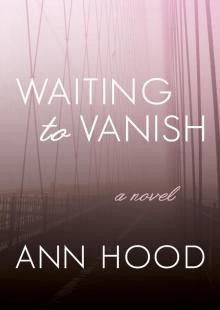 Waiting to Vanish
Waiting to Vanish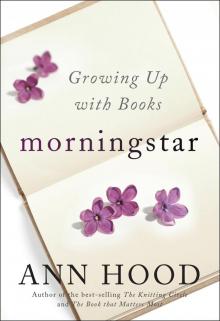 Morningstar
Morningstar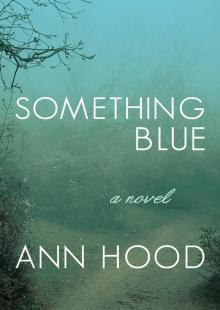 Something Blue
Something Blue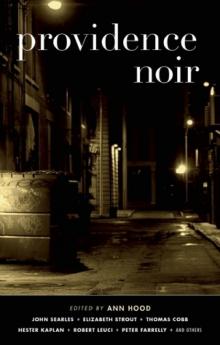 Providence Noir
Providence Noir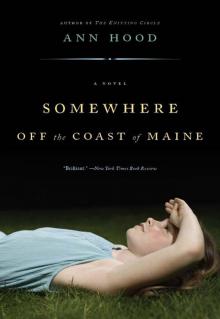 Somewhere Off the Coast of Maine
Somewhere Off the Coast of Maine Jewel of the East
Jewel of the East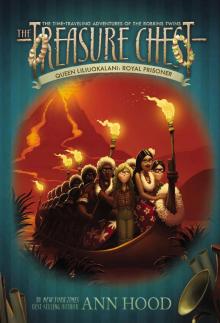 Queen Liliuokalani: Royal Prisoner
Queen Liliuokalani: Royal Prisoner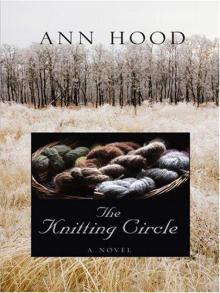 The Knitting Circle
The Knitting Circle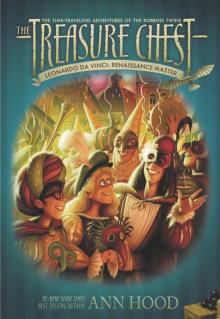 Leonardo da Vinci: Renaissance Master
Leonardo da Vinci: Renaissance Master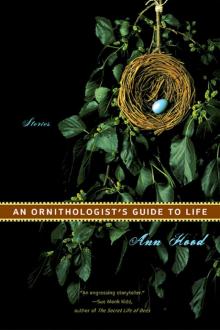 An Ornithologist's Guide to Life
An Ornithologist's Guide to Life The Red Thread
The Red Thread She Loves You (Yeah, Yeah, Yeah)
She Loves You (Yeah, Yeah, Yeah)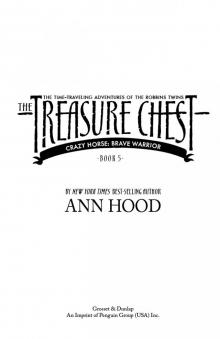 Brave Warrior
Brave Warrior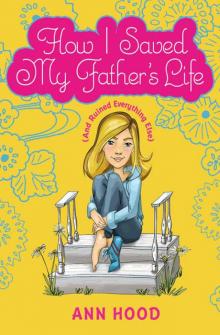 How I Saved My Father's Life (and Ruined Everything Else)
How I Saved My Father's Life (and Ruined Everything Else)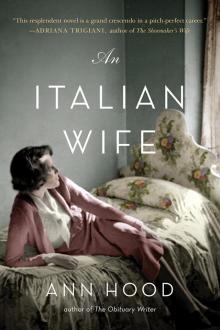 An Italian Wife
An Italian Wife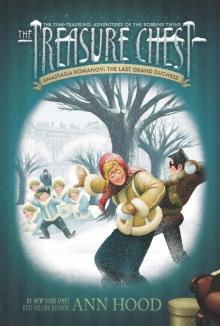 Anastasia Romanov: The Last Grand Duchess #10
Anastasia Romanov: The Last Grand Duchess #10 Prince of Air
Prince of Air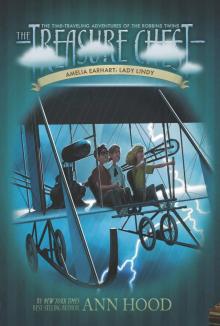 Amelia Earhart: Lady Lindy
Amelia Earhart: Lady Lindy Places to Stay the Night
Places to Stay the Night Little Lion
Little Lion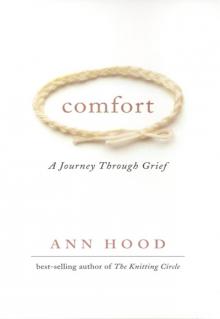 Comfort
Comfort Angel of the Battlefield
Angel of the Battlefield